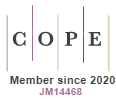ECONOMIC FUNDAMENTALS FOR VERTICAL INTEGRATION
DOI:
https://doi.org/10.5585/rev.%20gest.%20sist..v7i3.442Palavras-chave:
Vertical Integration, Productive Efficiency, Transaction Costs, Local Health Units, Health Care Provision., Lifestyle diseases.Resumo
According to received economic theory, vertical integration is mainly justified with the occurrence of productive efficiencies in addition of transaction costs between production stages. The present study aims to confirm the presence of these factors in the health care sector, thus justifying the urgency of vertical integration operations of the different health care stages. It is proposed an analysis of the vertical integration efforts in the Portuguese Health Sector, that comprises an attempt to decipher the benevolence and congruence of its catalysts, solutions and results. In addition, the results obtained with international operations of vertical integration are briefly reviewed and discussed, namely the positive outcomes regarding lifestyle diseases. It is generally expected that vertical integration in the health care sector should deliver more efficient and better health care to the populations, badly needed in low-income countries.Downloads
Downloads
Publicado
Como Citar
Edição
Secção
Licença
Direitos de Autor (c) 2019 Revista de Gestão em Sistemas de Saúde – RGSS

Este trabalho encontra-se publicado com a Licença Internacional Creative Commons Atribuição-NãoComercial-SemDerivações 4.0.
Autores mantém os direitos autorais e concedem à revista o direito de primeira publicação, com o trabalho simultaneamente licenciado sob a Creative Commons Atribuição - Não comercial - Compartilhar igual 4.0 Internacional que permite o compartilhamento do trabalho com reconhecimento da autoria e publicação inicial nesta revista.
Autores têm autorização para assumir contratos adicionais separadamente, para distribuição não-exclusiva da versão do trabalho publicada nesta revista (ex.: publicar em repositório institucional ou como capítulo de livro), com reconhecimento de autoria e publicação inicial nesta revista.
Autores têm permissão e são estimulados a publicar e distribuir seu trabalho online (ex.: em repositórios institucionais ou na sua página pessoal) a qualquer ponto antes ou durante o processo editorial, já que isso pode gerar alterações produtivas, bem como aumentar o impacto e a citação do trabalho publicado (Veja O Efeito do Acesso Livre) em http://opcit.eprints.org/oacitation-biblio.html


